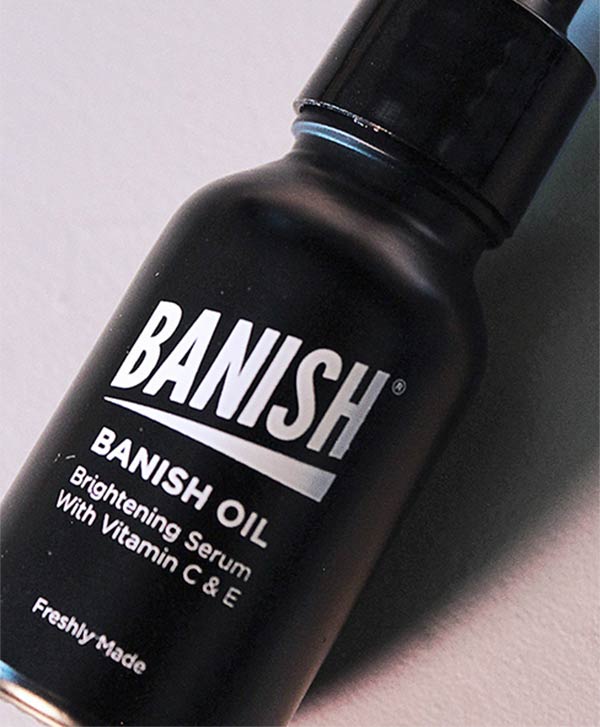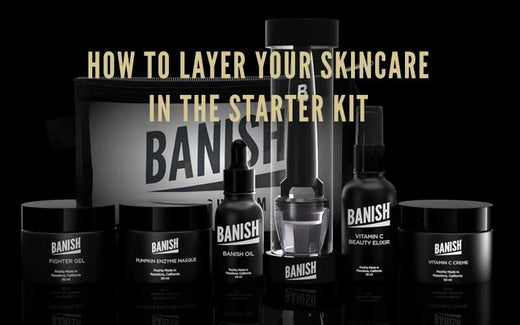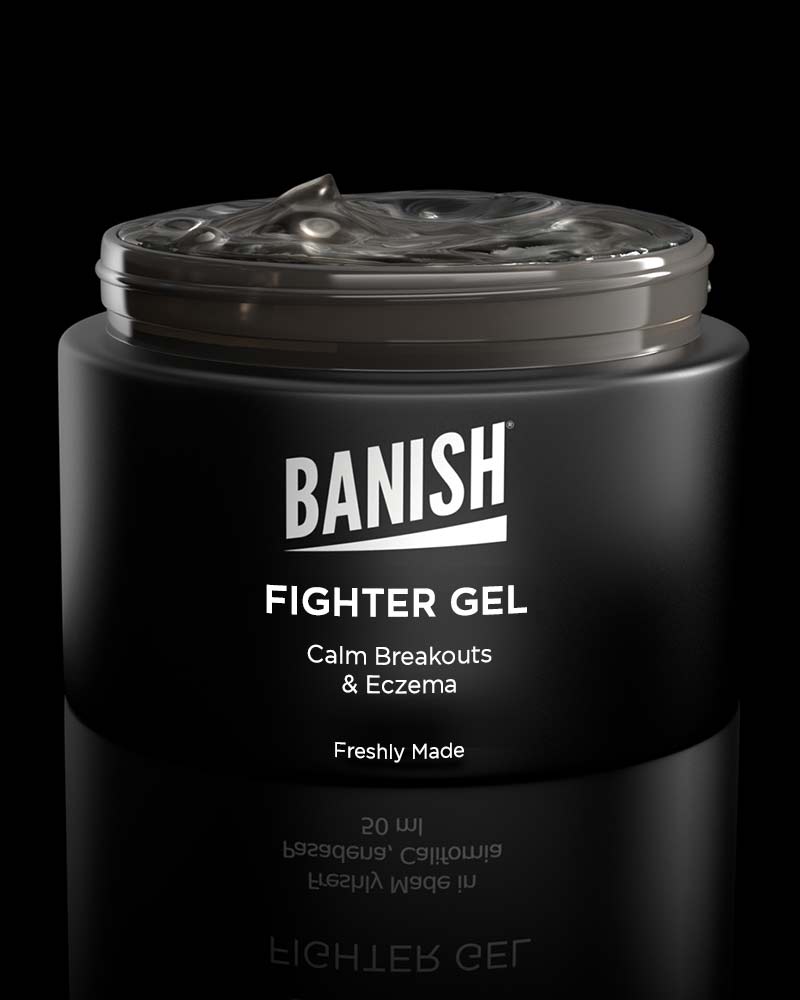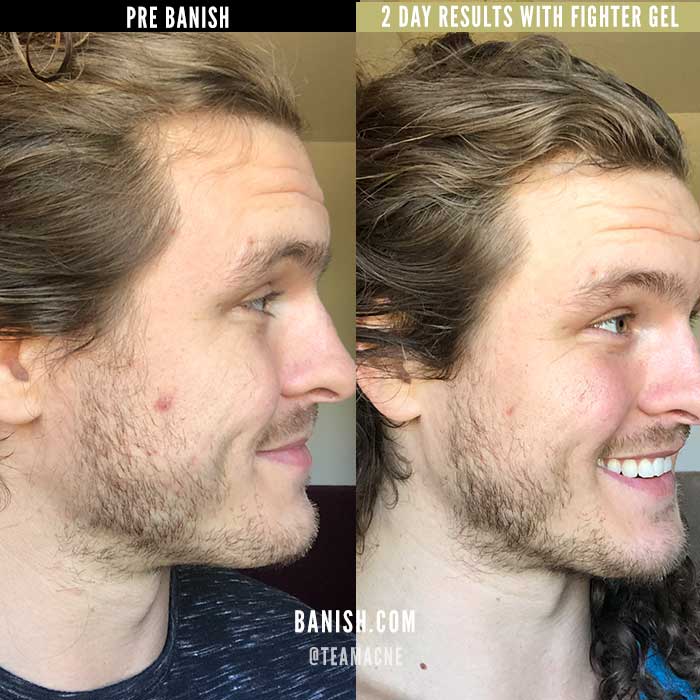By Daisy Jing
We’ve always been reminded to take our vitamins, especially Vitamin C. A couple of years later, you found out that Vitamin C is not just for fighting the flu or common cold but it is now an essential ingredient being hyped as a wonder ingredient in skincare.
The hype around Vitamin C is because it's a great ingredient that gives multiple benefits to skin and most people can use a Vitamin C serum without any issue! While it's great to eat foods containing Vitamin C, to get the most skin benefits of Vitamin C, it has to be applied topically.
This has caused a growth of skincare products with Vitamin C in them, most commonly Vitamin C serums.
With all the vitamin c serums around, here is a guide based on science to help you choose the best Vitamin C serum.
Skin Benefits Of Vitamin C
Through constant research, Vitamin C, known as a powerhouse ingredient, is not only beneficial inside of our bodies, but is also helpful on the outside when applied topically. Talk about the total package.
Our skin protects us from the harsh environment, however it will get damaged from the environment, and skin loses its ability to heal as fast as we age. Signs of skin damage may show up as dark spots like hyperpigmentation, fine lines, and acne scars.
Dermatologist Dr. Abby Waldman states that “Vitamin c serum helps with pigmentation, helps with wrinkles as well.”
Vitamin C is one of the ingredients applied topically that will help prevent and even reverse some of the the dark spots that we see on skin. When the skin ages or gets photodamaged from UV rays, Vitamin C levels on the skin actually lower, that’s why we need to put it back as much as we can and applying it topically is the best way.
A Vitamin C serum can’t do it alone though. It's also important to use UV protection each day especially to reap the benefits of a Vitamin C serum.
Vitamin C Serum Benefits
- Reverses Skin Damage
- Brightens Skin
- Removes Hyperpigmentation
- Reduces Photodamage When Used Under Sunscreen
- Increases Collagen
Vitamin C is an antioxidant which protects skin from oxidative damage.
Vitamin C also helps stimulate collagen production which improves the skin’s quality and texture to help with acne scars.
It fights free radical damage, repairs skin from the harmful effects of the UV rays and sun exposure, and adds an extra layer of protection from these elements.
Just to clarify, it doesn’t mean that Vitamin C serums are replacements for sunscreen. Vitamin C helps boost the deeper layers of your skin, while sunscreen would be the shield acting as the protection from UV damage.
Vitamin C prevents and gets rid of hyperpigmentation because it prevents an enzyme called tyrosinase. This enzyme is responsible for converting tyrosine into melanin, which blocks hyperpigmentation.
When you see ascorbic acid on your skin product ingredients list, that's a great sign since ascorbic acid is the pure form of vitamin c and the one most studied for the proven benefits.
HERE'S WHAT YOU NEED TO LOOK FOR WHEN CHOOSING THE BEST VITAMIN C SERUM:
- 3-20% concentration
- pH Level of 3-4
- Color should be light and clear
- Smell should be odorless
- Container should be dark, brown or amber-colored containers, keep your serum closed tight
- Type of vitamin c: L-ascorbic Acid
HOW TO CHOOSE THE BEST VITAMIN C SERUM

Look For Ascorbic Acid or L-Ascorbic Acid
There are actually different types of Vitamin C and the most common ones are L-Ascorbic acid, Magnesium Ascorbyl Phosphate, Ascorbyl Palmitate, Ascorbic Glucosamine, Tetrahexyldecyl Ascorbate and Sodium Ascorbyl Phosphate.
The reason why there are a lot of Vitamin C derivatives is because they have been processed to make them more stable in skincare formulations and some forms are less likely to irritate the skin.
When you see ascorbic acid or L-ascorbic acid on your Vitamin C serum ingredient list, it's the pure form of Vitamin C thats the most potent. This ingredient is also the one most studied with the most proven benefits.
We consulted with Dermatologist Dr. Emma who recommends L-ascorbic acid which is the standard for a good quality vitamin c.
Vitamin C has high instability in its purest form and should be combined with other ingredients to make it stable, like Vitamin E and Ferulic acid or in a low water formula. Another benefit to combining ferulic acid with vitamin C is that "Ferulic acid is also an antioxidant and it has a synergistic effect with vitamin c" According to Dermatologist Dr. Emma.
It is best to choose one which is formulated without silicones, artificial fragrance, or dyes.
CONCENTRATION
Vitamin C serums are used to promote collagen synthesis. They are usually in an acidic concentration to penetrate the skin and target skin issues like hyperpigmentation and acne scars. Concentration simply means the strength of the acid.
The best Vitamin C serums have proven to be beneficial and effective at concentrations ranging from 3-20%.
The higher the concentration, the higher the potential for skin irritation.
Formulation
Concentration is important, but the best Vitamin C serums out there would usually combine it with Vitamin E and Ferulic acid, which improves the ability of Vitamin C to repair skin damage. This mixture also helps stabilize the Vitamin C so it doesn't degrade after being mixed into a liquid.
PH LEVEL
It is also important to look for Vitamin C serums which have a lower pH level, around 3-4, so that you’ll be sure that it will be absorbed by the deeper layers of the skin. However, a lower pH level means that it is more acidic, which may cause some stinging and irritation for those with sensitive skin.
COLOR
The color of the best Vitamin C serum should be very light and clear.
Whenever you see that the color changes to something yellowish to orange then to brown, it means that it is oxidizing thus losing the effectiveness of the Vitamin C.
When this happens, that will be your clue to replace it as the benefits of this Vitamin C serum won't really be there anymore.
If your Vitamin C serum has a “hot dog smell”, it's gone bad and it may be best to purchase a new one.
On a very positive note, as far as we know, Banish is the ONLY brand that makes and packages your Vitamin C serum fresh as soon as your order is placed.
Rest assured that your Banish Vitamin C Serum has not been sitting in a warehouse or department store shelf for months, losing potency before you receive it.
PROPER STORAGE
Vitamin C in its purest form is highly effective yet a tricky ingredient to formulate with as it is unstable due to its properties and exposure to oxygen, light, water and high pH.
That's why Vitamin C serums should be stored in a cool, dark, and dry place.
You’ll often see the best Vitamin C serum which contains L-Ascorbic acid stored in dark, brown or amber-colored containers which are airtight. Put the cap back on as soon as you can and make sure that it’s screwed on tight to avoid air from seeping in and avoid opening your serum unless you plan to use it.
To prevent vitamin c from going bad, you can store it inside the fridge which will keep the Vitamin C Serum fresh longer.
When To Apply Vitamin C Serum
There are arguments as to when would be the best time to apply Vitamin C to be most effective. Some experts said that it should be applied at night to help the skin to repair itself. Some said it should be during the day to help fight free radical damage which we accumulate throughout the day.
Well, the answer is… (drum roll) it doesn’t matter! ( that much ) However if you want to get the photodamage prevention benefits, apply it during the day before your sunscreen. The most important thing is that you remember to use it. Using it on a daily basis can benefit your skin. If you’re just starting out, use it every other day with 3-4 drops to cover your entire face and move to daily use as you get used to it.
Another tip is to apply it on your neck to benefit from the same skincare you give your face.
RESULTS
Remember that it could take some time before you see its effectiveness, so patience and consistency plays a big role here.
On average, it could take about 2-3 months to really see a brightening effect with consistent use of a vitamin c serum, depending on the extent of the skin damage.
Again, any results do vary from person to person.
SIDE EFFECTS
There are no known harmful side effects of Vitamin C except the occasional breakouts, redness or irritation which could be a result of a formulation that isn't suited for your skin type.
In this case, you can always try another brand or formulation.
Some may be allergic to Vitamin C itself, it is rare but possible - if you are allergic to Vitamin C avoid using it.
Again, doing a patch test is important to see how your skin will react to it and it is also advisable to check on the list of ingredients first.
Watch out for other Vitamin C serums that could contain an ingredient called propylene glycol. This ingredient has been shown to cause allergic reactions to people with skin conditions like eczema as well as causing contact dermatitis. Some studies show that there is a toxic effect when propylene glycol is applied in large amounts.
This is because in the U.S., propylene glycol is approved for use at 99% concentration and can be found in food or medications which may lead to increased sensitivity with all the multiple exposures.
To avoid sensitivity, avoid layering before or after a retinol or retinoid. Wait 30 minutes or more before applying each product to lessen irritation.
Recommended Vitamin C Serum
If you're looking for a good Vitamin C serum, Banish has the Banish Vitamin C Serum, which is created in a glycerin base.
Glycerin is a great ingredient in skincare since it is a humectant meaning it will attract water to help keep skin hydrated. It's free of colorants so you'll be able to tell if it has gone bad or if the Vitamin C serum isn't fresh anymore. It's also combined together with Vitamin E and Ferulic Acid to stabilize it.
There are many Vitamin C serums on the market, which promise a lot of things. We hope that this article will help you in finding the right formulation that suits your skin type and is worth your money. Listen to what your skin tells you and you will never go wrong.
Maintain a positive outlook in life and if one product doesn’t suit you, move on and find another. It’s more of a trial and error thing until you get to see your match. Most importantly, as much as you would like to see results, be patient!
Now you know what to look for in a Vitamin C serum which will give you the best results, have you already picked the best Vitamin C serum for your skin?
What Vitamin C serum are you using with your skin care regimen? Feel free to share them below!
Meanwhile, stay awesome, beauties!
Sources
Role of Vitamin C in Skin Health: https://www.ncbi.nlm.nih.gov/pmc/articles/PMC5579659/
Double-blind, half-face study comparing topical vitamin C and vehicle for rejuvenation of photodamage https:://pubmed.ncbi.nlm.nih.gov/11896774/
Vitamin C and Skin Health | https://lpi.oregonstate.edu/mic/health-disease/skin-health/vitamin-C

























Leave a comment
All comments are moderated before being published.
This site is protected by hCaptcha and the hCaptcha Privacy Policy and Terms of Service apply.